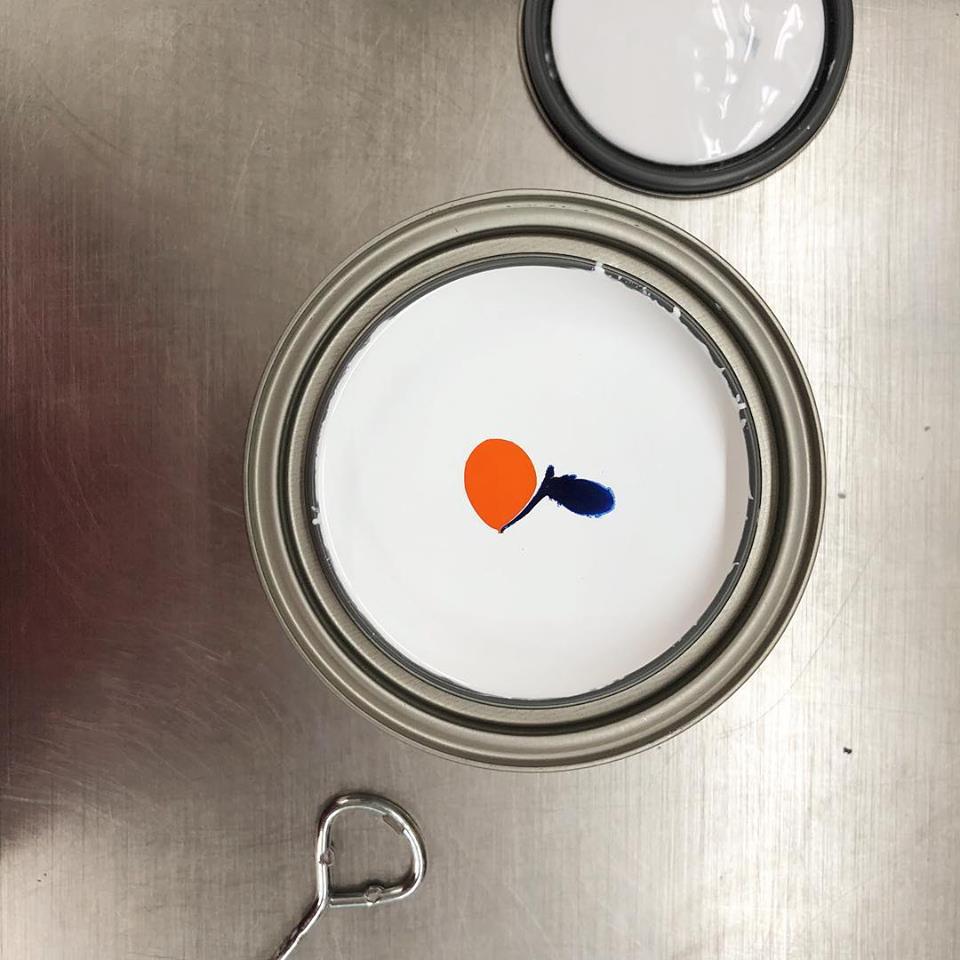
The woman in the apartment on my left has her head drooped low and an arm weighed down by a yellow watering can spouting all over the clay pots that line the metal bars of her terrace. If she had fuchsia pink hair, she would look exactly like the hibiscus flowers she’s been growing in the pots. She does this every morning, but the flowers don’t seem to want to cooperate and are already starting to look listless, and she can’t figure out why. I want to tell her she’s doing it wrong—hibiscus plants need to be watered every day in the summer, but once the weather cools, like it already has on this early November morning, they need only a little water every now and then. I want to tell her she’s killing them, and it’s only a matter of time until she slides her glass door open one morning to find them with limp pink heads and yellowing leaves, all bogged down by the weight of her well-intentioned care. I know this because in the garden of the old house I lived in for fifteen years before moving to this row of anonymous flats just a month ago, I used to have a fully-grown hibiscus shrub. I didn’t do much to help it, but it thrived and exploded in bursts of red all throughout both the brisk mornings and the shimmering afternoons. I want to tell her all of this but I don’t. What she does on her terrace is none of my business.
She sees me sitting on a white plastic chair on my own terrace, a leftover from my old garden set, drinking my morning coffee and lighting up a cigarette. The white tiles in my own tiny strip of space are shiny but strewn with wayward ashes and some squiggles of hair that the wind has plucked from my scalp. The scraggly black strands look forlorn without my dog’s golden hair tangled along with them. Her own ashes now sleep in a small wooden box on top of my bookshelf, and beside it, a tuft of her fur rests undisturbed by the wind under the gleam of a glass dome keepsake. The woman on my left looks over at me dolefully with an almost imperceptible shake of her head. I can practically see the gears in her brain kicking alive, churning and wheeling over why, in this day and age, would somebody still choose to smoke, why not just jump over the railing of the terrace down to the ground twenty-nine floors below and be done with it, to which my own gears quickly churn back, well, we all self-destruct somehow—we just do it in different ways. You shouldn’t fret. What I do on my terrace is none of your business.
I almost say the last words out loud, but just then a flock of gray doves flies over us, and my head snaps up. A few seconds later, another one. This goes on for about five times before I realize that it’s the same flock circling round the building. They are shaped like an arrow, the alpha bird at the tip and his six minions divided into two slants of three. They look like cadets on a morning jog, warming up before the commander releases them to their designated posts for the day. In the space between the fifth and the sixth round, I look over to the woman on my left and see her hand still holding the watering can aloft, water dribbling down her hapless hibiscus, making them nod like somnolent bobbleheads, her face upturned and waiting for the doves like I am, grasping at the harmony in the gray and the order in the middle of random things like the dying and flying of the things we hold dear, and sharing in the same pockets of grace that happen when one remembers to look up.
__
Och Gonzalez is a teacher, writer, and artist from Manila, Philippines, and was the recipient of a 2016 Palanca Award for Literature. Her writing has appeared or is forthcoming in Esquire, Flash Fiction Magazine, Panorama Journal, and elsewhere.
Photo by Elizabeth Fackler

5 comments
Emily says:
Jul 8, 2019
Thoroughly enjoyed this. Thank you.
Jean C. says:
Jul 8, 2019
Och, the textures and images in your essay capture the mood of you and your neighbor. And the conclusion! Oh, my–so wonderful and uplifting.
iliana says:
Sep 5, 2019
Beautiful!
Joe Mama says:
Oct 21, 2019
The problem with smoking is that it does become your neighbors business when your cancer smoke drifts into their apartment.
Ami F says:
Jul 12, 2020
Loved it! I am Looking for other Filipino women writers to read.